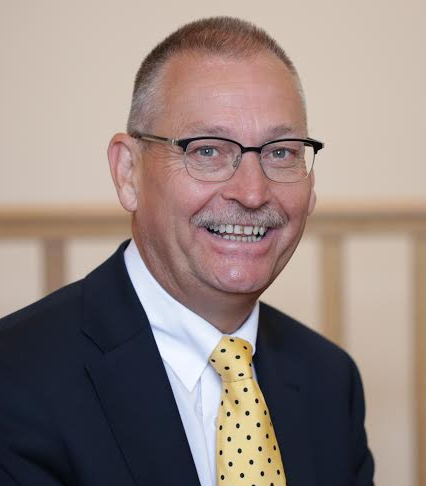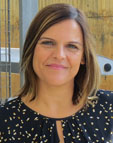|
|
Keynote Speakers |
| Mark Brown |
|---|
 Professor Mark Brown is Director of the National Institute for Digital Learning (NIDL) at Dublin City University (DCU). Before taking up Ireland’s first Chair in Digital Learning at the start of 2014, Mark was previously Director of both the National Centre for Teaching and Learning (NCTL) and Distance Education and Learning Futures Alliance (DELFA) at Massey University, New Zealand.Over the last decade Mark has played key leadership roles in the implementation of several major university-wide digital learning and teaching initiatives, including the selection and enterprise wide deployment of Moodle, the original design and development of the Mahara e-portfolio system, preparation and implementation of a major business case for a rich media learning project using Mediasite, and the university-wide adoption of a Massive Open Online Course (MOOC) platform (Open2Study). Since his arrival at DCU, Mark has led the development of DCU Connected, a major new platform
encompassing a suite of online programmes for off-campus students,and is currently leading the design and implementation of the DCU Open Academy. This initiative involves the adoption and piloting of a new international MOOC platform, which comes under the wider European funded OpenUpEd portal.Professor Brown serves on several international journal editorial boards and has published extensively in the areas of Online, Blended and Digital Learning. Mark chairs the Digital Learning Research Network at DCU and currently plays a leading role in a number of externally funded research and development projects, including, EMPOWER, HOME, SCORE2020, Toolbox for Student Success, and Y1Feedback. Mark’s wider research and administrative interests include policy development, internationalisation, the societal benefits of higher education, learning spaces, teaching and learning development, learner success, and the nature of the student learning experience. Mark currently Chairs the Teaching and Learning Steering Committee for the European Consortium of Innovative Universities (ECIU). He has also been recently appointed to the Executive Committee of the European Distance and E-learning Network (EDEN) and serves on the Board of the Irish National Forum for the Enhancement of Teaching and Learning in Higher Education. Mark jointly leads the EMPOWER Online Learning Leadership Academy (EOLLA) and contributes as a faculty member to the US-based Online Learning Consortium's (OLC) Institute for Emerging Leadership in Online Learning (IELOL). Additionally, Mark provides consultancy services to Epigeum, a subsidiary of Oxford University Press, in the development of online professional development for universities, and is currently Lead Advisor for a course on Blended Learning. Mark is past President of the New Zealand Association for Open, Flexible and Distance Learning (DEANZ) and was Treasurer and an Executive Committee member of the Australasian Society for Computers in Learning in Tertiary Education (ascilite). Ascilite is the peak professional body for digital learning in Australia and New Zealand. In New Zealand, he also had responsibility for oversight of the Central Hub of Ako Aotearoa – the National Centre for Tertiary Teaching Excellence. Mark is a recipient of a National Award for Sustained Excellence in Tertiary Teaching and member of the New Zealand Academy of Tertiary Teaching Excellence.
Quality in Technology-enhanced Learning:Old Traditions, New Delights
The inconvenient truth about new models of technology-enhanced learning is that too often they reinforce traditional forms of teaching and do not transform conventional educational outcomes. In many cases the lesson from history is that educational technology is nothing more than an expensive ‘add on’ to the traditional curriculum. Set against this critical backdrop the keynote presentation explores the modernization agenda and quality challenge for higher education arising from of the emergence of new Blended, On-line and Distance (BOLD) models of technology-enhanced learning. It compares and contrasts a number of different quality perspectives and discusses the question how can we ensure and support teachers to exploit the transformative potential of new technology in the 21st Century learning environment? The basic tenet of the presentation is that governments and modern institutions of higher learning need to strike a balance between a strong focus on quality assurance, and building a long-term commitment to a culture of innovation and quality enhancement. A number of examples and quality enhancement frameworks from other institutions and countries are described to support the current quality mission in Jordan. Finally the presentation reflects on the rapidly changing face of higher education and some of the challenges and opportunities for living and learning in uncertain times.
| | | Pastora Martinez Samper |
|---|
 Pastora Martinez Samper, Vice President for Globalization and Cooperation, UOC , she has a doctoral degree in Physics from the Universidad Autónoma de Madrid, an Executive MBA from EADA Business School and a masters degree in Leadership and Management in Science and Innovation (UB-UAB-UPF joint programme). Since 2008, she has been an evaluator for the Spanish National Research Evaluation and Analysis Agency (ANEP) in the area of technology transfer. From 2010 to 2016, she was managing director at the August Pi i Sunyer Biomedical Research Institute (IDIBAPS), a Spanish leading biomedical research center.
Using eLearning to Achieve Quality Education for All
The United Nations approved in September 2015 the 2030 Agenda for Sustainable Development, an ambitious action plan that aims to address the greatest global challenges and contribute to a sustainable future. Among its 17 Sustainable Development Goals (SDG), SDG 4 seeks to ensure equal access for all to “affordable and quality tertiary education, including university” by 2030.The Open University of Catalonia (UOC) is an innovative university, rooted in Catalonia and open to the world, that was created in 1995. The UOC’s mission is to offer lifelong learning in order to contribute to the advance of individuals and the progress of society, and carry out research into the knowledge society. Our educational model is based on personalization and accompanying students using e-learning. We are convinced, that one efficient way to contribute to achieving SDG4 is e-learning. Online education offers the valuable opportunity to reach the unreached. We would like to seize the opportunity of the keynote and present some experiences and examples showing how e-learning can help to reach SDG 4.
| |
|
|
|